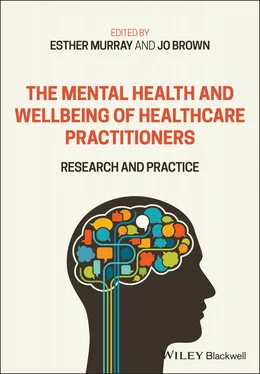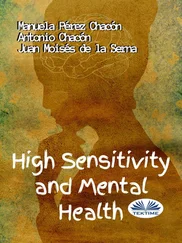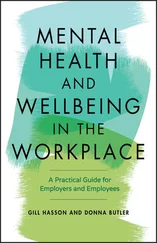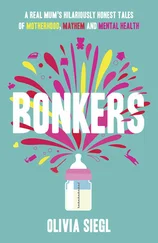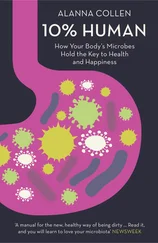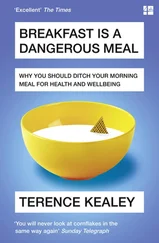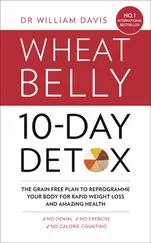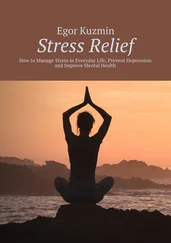The Mental Health and Wellbeing of Healthcare Practitioners
Здесь есть возможность читать онлайн «The Mental Health and Wellbeing of Healthcare Practitioners» — ознакомительный отрывок электронной книги совершенно бесплатно, а после прочтения отрывка купить полную версию. В некоторых случаях можно слушать аудио, скачать через торрент в формате fb2 и присутствует краткое содержание. Жанр: unrecognised, на английском языке. Описание произведения, (предисловие) а так же отзывы посетителей доступны на портале библиотеки ЛибКат.
- Название:The Mental Health and Wellbeing of Healthcare Practitioners
- Автор:
- Жанр:
- Год:неизвестен
- ISBN:нет данных
- Рейтинг книги:3 / 5. Голосов: 1
-
Избранное:Добавить в избранное
- Отзывы:
-
Ваша оценка:
- 60
- 1
- 2
- 3
- 4
- 5
The Mental Health and Wellbeing of Healthcare Practitioners: краткое содержание, описание и аннотация
Предлагаем к чтению аннотацию, описание, краткое содержание или предисловие (зависит от того, что написал сам автор книги «The Mental Health and Wellbeing of Healthcare Practitioners»). Если вы не нашли необходимую информацию о книге — напишите в комментариях, мы постараемся отыскать её.
Explore this innovative new volume covering the growing mental health crisis amongst healthcare practitioners The Mental Health and Wellbeing of Healthcare Practitioners
The Mental Health and Wellbeing of Healthcare Practitioners
The Mental Health and Wellbeing of Healthcare Practitioners — читать онлайн ознакомительный отрывок
Ниже представлен текст книги, разбитый по страницам. Система сохранения места последней прочитанной страницы, позволяет с удобством читать онлайн бесплатно книгу «The Mental Health and Wellbeing of Healthcare Practitioners», без необходимости каждый раз заново искать на чём Вы остановились. Поставьте закладку, и сможете в любой момент перейти на страницу, на которой закончили чтение.
Интервал:
Закладка:
As students feel safer, they progressively share more of themselves, elsewhere described as ‘vulnerable reflection’ [35]. A student image sketched other medical students as brightly coloured fish whilst she depicted herself as a small black fish at the bottom left hand corner of the painting. In their reflective journals other students wrote about their gratitude for her courage in sharing. Solidarity is built as they realise they are not alone.
I didn't expect to hear that other students felt out of their depth or like other people were more talented and bright than them so it was nice to discover I was not the only one. I didn't expect how open and honest everyone would be and it was refreshing [32].
Through collective meaning‐making and sharing, connections deepen. One participant described getting to know students better in this group over the last eight sessions, than he had other students over the last two years at medical school. Another student writes:
I remember writing lots that I felt privileged in the diary…because you don't usually get to see that side of people and I think it's a real honour when people decide that they feel comfortable enough or trust the group or you enough that they can open up like that [8].
Student Dialogue with Themselves
One student who was well versed in visual art, had never before tried creative writing. After the creative writing session on the course, she began to use creative writing to process some of what she was going through and found it to be surprisingly powerful and helpful. She created an image to capture this, of an artist, face covered, painting her portrait. The Three Dimensional ( 3D ) image of her face emerges from the page:
My painting is a self‐portrait of me, writing. My hair is covering my face, this is to illustrate that when I initially pick up the pen, I am hiding from something; I am not in tune with myself. From the page I am writing on emerges my reflection; the idea that my identity is revealed to me as I write [27].
This is a helpful illustration of how expression through the arts can facilitate or extend the dialogue we have with ourselves [36]. Other students also describe this experience:
The process [of writing a poem] requires you to be very honest and it stirred up many emotions that have remained dormant…It required me to be more honest with myself … . [8].
…Poetic or artistic expression is a means by which innermost thoughts and feelings are given form so that they can be viewed and interpreted by their creators and by others. It has become evident how important it is to express these thoughts – to learn more about ourselves and to feel more at one in our own skin [8].
It seems that through the creative process not only is vulnerable reflection with others possible, but a more vulnerable encounter with the self, and even the shadow sides of our experiencing which we might ordinarily seek to avoid [37]. Silence as well as creative expression may both be important facilitatory features in this work.
I found it helpful writing down what exactly I was finding difficult. It gave the challenges less power… [32].
The periods of silence throughout the week are when I think I was able to sort out a lot of feelings and things I was experiencing in my personal life [32].
Here one of the students makes the case for turning towards rather than away from what is difficult, the importance of which has also been described in creative enquiry work with junior doctors [38]. It is hard to argue against the importance of good eating, sleeping, exercising but perhaps there is also value in extending student engagement with their lived experiences and challenges through the arts or other kinds of group work.
In our lectures of wellbeing, we were often told that we need to make sure that we spend time with friends and pursue hobbies and interests outside of medicine. We were told to take regular breaks and to exercise. Though these suggestions are helpful, during this SSC I realised that all the wellbeing strategies we are taught teach us to allow Medicine to consume our whole lives, and to cope we should take intermittent short breaks to distract ourselves from the vacuum. I realised that true wellbeing, is facing what we are struggling with and not avoiding it, and finding the positives and solutions through that process [32].
This deeply personal work of expression and exploration, using metaphor and symbol to extend reflection and understanding can be experienced as transformative [8].
To describe the Creative Arts Student Selected Components in two words would be: life changing… [32].
…I believe that I learnt more about myself in the past two weeks than I have in my twenty‐one years. I have been able to open up, when I have always kept my emotions and thoughts to myself… [32].
FUTURE DIRECTIONS
What I have presented in this chapter is a snapshot into 15 years of creative enquiry work with medical students which shows that creative enquiry offers a learning environment of collaboration, enquiry and extended dialogue with the other and with ourselves. Through student quotes and creative work, I have sought to evidence ways in which creative enquiry can foster human flourishing alongside practitioner development work, actually two sides of the same coin – one relating to understanding the self and the vulnerability of human nature and the other to understanding of the humanity of others.
That this might lead to flourishing is endorsed by research by Satici et al. [39] into the connection between self‐compassion (a concept which essentially relates to understanding our humanity) and flourishing amongst university students [39]. Students were asked to complete questionnaires that included the flourishing scale and the self‐compassion scale. Analysis of responses found that self‐kindness (rather than self‐judgment), common humanity (versus isolation), and mindfulness (versus over identification) were positively related to flourishing [39]. Self‐kindness means being warm and understanding towards oneself in our inadequacies and failings rather than ignoring pain, or being self‐critical. Common humanity refers to understanding that we all fall short, make mistakes, feel inadequate and this can be a point of connection rather than isolation. Mindfulness is described as engaging with negative emotions in a balanced way, not suppressing or exaggerating them [39]. Creative enquiry offers an environment that invites kindness and connection in vulnerability as well the arts themselves offering other languages to gently explore emotions that might be difficult to articulate.
Lee Roze des Ordons et al. [40] explore humanity in relation to both patient care and physician wellness (similar to my concepts of practitioner development and human flourishing, respectively) through semi‐structured interviews with faculty. Five themes relating to shared humanity emerged. These all find resonance in my description of creative enquiry above. They are Whole person care – engaging with psycho‐socio‐emotional dimensions of personhood, Valuing – respect for a person's intrinsic value, Perspective taking – engaging with other perspectives and suspending judgment regarding other worldviews, Recognising universality – the shared elements of the human condition beyond professional boundaries and finally Relational focus – becoming part of another's story and reciprocally being transformed and changed through entering another's world. The authors mention the need for ‘creative imagining’ on how to embed this work in the undergraduate curriculum. What I have offered are examples of ways in which this kind of humanism is already being invited.
Читать дальшеИнтервал:
Закладка:
Похожие книги на «The Mental Health and Wellbeing of Healthcare Practitioners»
Представляем Вашему вниманию похожие книги на «The Mental Health and Wellbeing of Healthcare Practitioners» списком для выбора. Мы отобрали схожую по названию и смыслу литературу в надежде предоставить читателям больше вариантов отыскать новые, интересные, ещё непрочитанные произведения.
Обсуждение, отзывы о книге «The Mental Health and Wellbeing of Healthcare Practitioners» и просто собственные мнения читателей. Оставьте ваши комментарии, напишите, что Вы думаете о произведении, его смысле или главных героях. Укажите что конкретно понравилось, а что нет, и почему Вы так считаете.
